CARA Resource Hub
Welcome to the CARA hub. Within the City Aphasia Lab, our research is driven by the priorities of people with aphasia, their families and the clinicians working with people with aphasia. It aims to influence clinical practice. On this hub page, you will find information and resources about the different aphasia projects we run at City, University of London.
- Videos
- Resources
- Current Projects
- Completed Projects
Videos
Supporting emotional recovery
A series of films to help healthcare professionals support the emotional recovery of people after a stroke and aphasia
Research Summary
Information sharing by SLTs and nurses on stroke wards
Aphasia Therapies
Guide
How to use the remote-control function in Zoom for speech and language therapy assessments
User Involvement
Examples of user involvement, sometimes called Patient and Public Involvement (PPI), in the development of research at City St George’s, University of London.
Aphasia and Technology
Examples of exploring technology access for mainstream technologies.
Resources
The Scenario Test
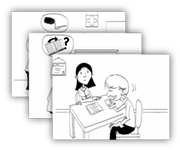
https://www.jr-press.co.uk/the-scenario-test.html
The Scenario Test UK Administration Training Resource
The Scenario Test (validated in the UK) is a daily life communication measure for people with aphasia. It measures how a person with aphasia conveys everyday messages, verbally and/or nonverbally, in an interactive setting. A main strength of The Scenario Test is that it captures all types of communication and how effective they are and it is thus suitable for people with severe aphasia, with no or very limited verbal language.
- Follow the jr-press URL above to purchase this test from J & R Press.
- Click the link below to download a PowerPoint presentation providing training on The Scenario Test and its administration.
Download Scenario Test UK Administration Training
Once downloaded, click on the read only button to view the training presentation.
[Please note. This presentation is best viewed on a computer or other large screen.]
The LUNA resources
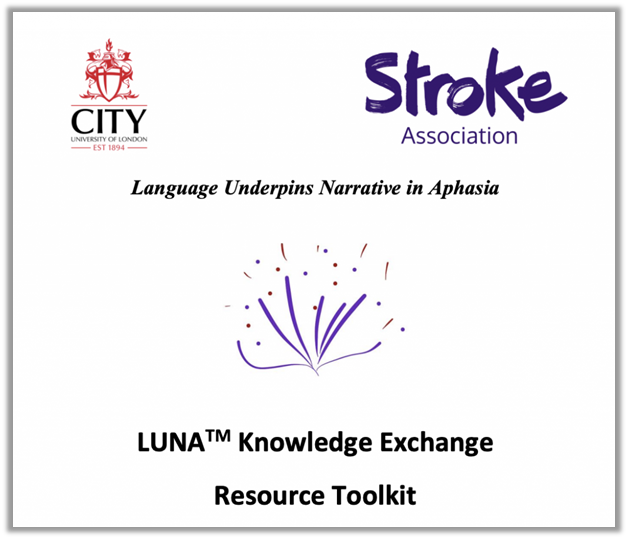
This resource contains two documents. The development of this resource was funded by a City, University of London Higher Education Innovation Funding grant, awarded in 2020. The first document is a PowerPoint slide deck which summarises the two LUNA™ journal articles published in 2020. These slides are designed as an alternative to reading the two journal articles and provides pointers for individual clinicians and teams for discussion, reflection, and action. The second document is a toolkit with resources to support discourse assessment & treatment in clinical practice drawn from the journal article findings.
The City Gesture Checklist (CGC)
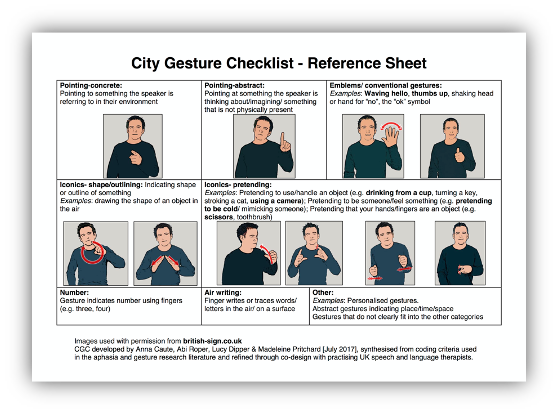
The City Gesture Checklist (CGC) is a ‘quick and dirty’ printable resource for gesture analysis in aphasia. It enables clinicians and researchers to analyse and record the types of gesture produced by people with aphasia without the need for time-consuming video gesture coding facilities. The CGC synthesises coding categories used in the research literature about gesture in aphasia to help clinicians and researchers structure their observations of gesture. Users can record the types of gestures that people with aphasia use and factors affecting gesture use – encouraging reflection on how effectively a person is using gesture.
Read the supporting research article: Caute, A., Dipper, L., & Roper, A. (2021). The City Gesture Checklist: The development of a novel gesture assessment. International Journal of Language & Communication Disorders, 56(1), 20-35. https://onlinelibrary.wiley.com/doi/full/10.1111/1460-6984.12579 .
The City Gesture Checklist (Caute, Dipper and Roper, 2021) was culturally adapted and translated into Kannada by Chirag Girish Kiran, Analisa Pais and Anna Caute in 2024.
The EVA Park Therapy Manuals
Research studies have investigated the feasibility of delivering a range of interventions in the virtual environment of EVA Park; functional conversation, noun naming, verb treatment, sentence mapping, storytelling and social support groups.
EVA Park Therapy Manual 1: Noun Therapy
A therapy manual for delivering semantic feature analysis, a noun therapy, in the virtual world EVA Park. The manual was developed in 2016 for use in a research project funded by the Tavistock Trust for Aphasia. With thanks to Mary Boyle and Celia Woolf for permission to adapt the original therapy approaches.
EVA Park Therapy Manual 2: VNeST
Therapy Manual for the verb therapy VNeST delivered in the virtual world EVA Park. This manual was developed in 2016 for use in a research project funded by the Tavistock Trust for Aphasia. With thanks to Lisa Edmonds for permission to adapt the original therapy approach.
EVA Park Therapy Manual 3: Interactive Storytelling
Therapy manual for delivering Interactive Storytelling, a discourse therapy, in the virtual world EVA Park. This manual was developed in 2016 for use in a research project funded by the Tavistock Trust for Aphasia. With thanks to Marcella Carragher for permission to adapt the original therapy approach.
EVA Park Therapy Manual 4: Scripts Therapy
Therapy manual for delivering script therapy in the virtual world, EVA Park. The manual was developed in 2016 for use in a research project funded by the Tavistock Trust for Aphasia. With thanks to Gina Youmans and Katerina Haley for permission to adapt the original therapy approach.
EVA Park Therapy Manual 5: Sentence Mapping Therapy
Therapy manual for delivering mapping therapy, a sentence therapy, in the virtual world, EVA Park. This manual was developed in 2016 for use in a research project funded by the Tavistock Trust for Aphasia. With thanks to Elizabeth Rochon for permission to adapt the original therapy approach.
EVA Park Therapy Manual 6: Functional Conversation
Therapy manual for delivering a functional conversation therapy in the virtual world, EVA Park. This manual was developed in 2013 for use in a research project funded by the Stroke Association: Evaluating Virtual worlds for people with Aphasia (EVA).
EVA Park Therapy Manual 7: Social Support Groups
Therapy manual for delivering a group social support intervention in the virtual world, EVA Park. This manual was developed in 2017 for use in a research project funded by the Stroke Association: Delivering group support for people with aphasia through a virtual communication environment.
Current Projects
The APT project: Aphasia Partnership Training – helping families communicate better
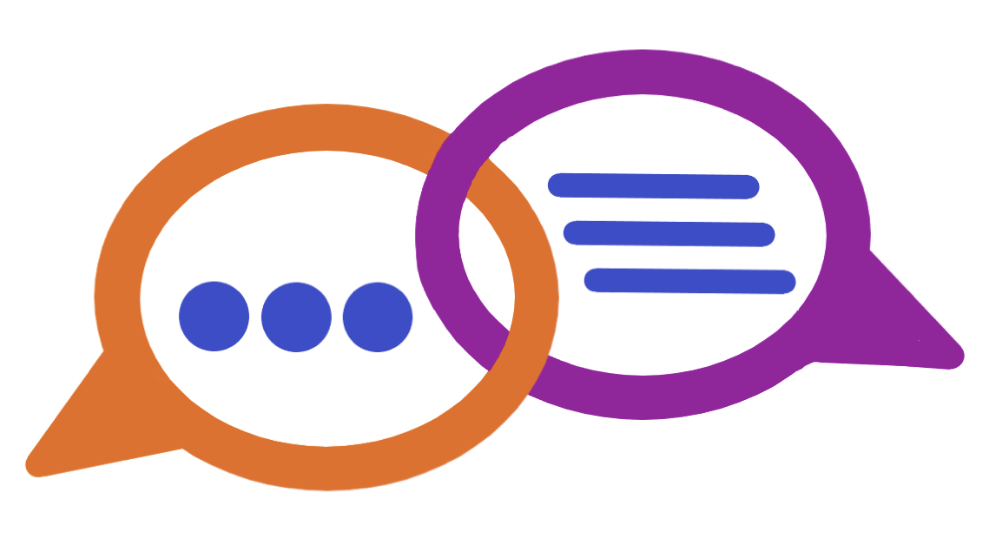
https://blogs.city.ac.uk/theaptproject/
Aphasia affects the whole family, not just the person with aphasia. Communication partner training (CPT) is a type of therapy for people with aphasia and their families. CPT may help people with aphasia and their family to have good conversations again, but at the moment, CPT is not routinely offered by speech and language therapists in the National Health Service (NHS) in the United Kingdom.
Our ambition is to develop meaningful and effective aphasia partnership training for people with aphasia and their families that will be available on the NHS.
Dara: Inclusive data visualisations for people with communication impairments
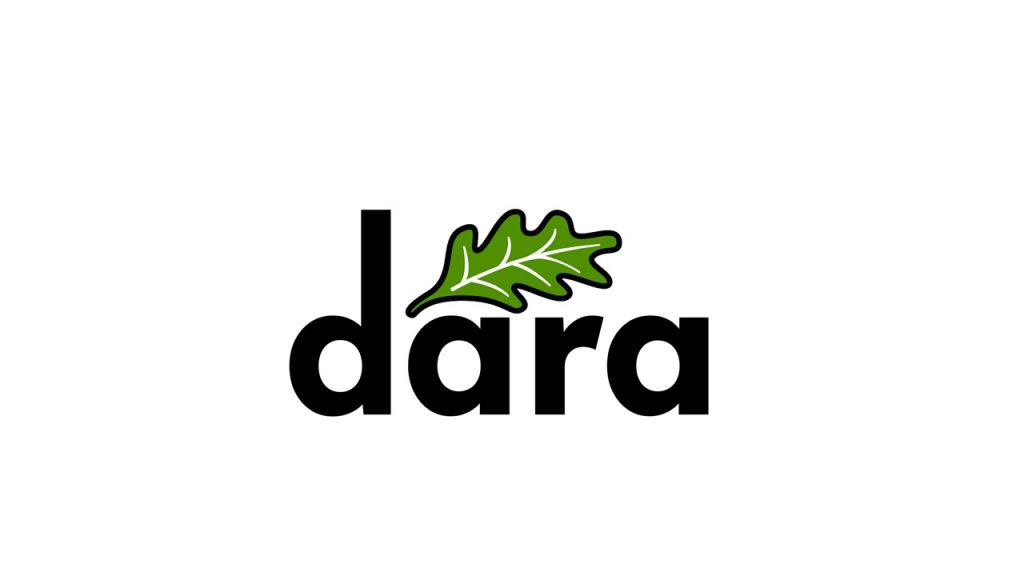
The aim of this project is to investigate and create inclusive data visualisations to support personal decision-making for people with communication impairments. The project will address a significant gap in knowledge about how people with communication difficulties use data visualisation for decision-making. We will then use that knowledge to design and test new, inclusive visualisations and develop methods, guidelines and tools for these inclusive visualisations.
This project brings together an exciting multidisciplinary team from inclusive design (Human-Computer Interaction Design in School of Science and Technology), Speech and Language Therapy (Language and Communication Science in the School of Health and Psychological Sciences) and data visualization (giCentre, School of Science and Technology).
Improving access to healthcare: Face-to-face And Telehealth Equivalence of assessments in Aphasia (FATE-A)
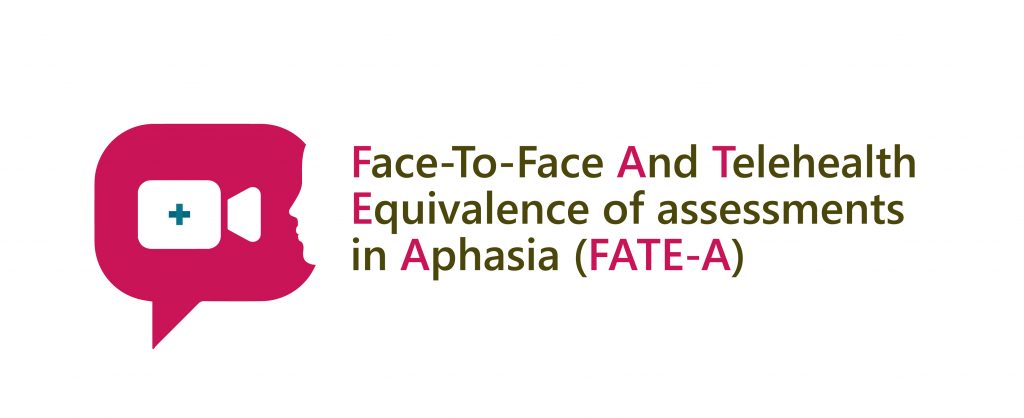
https://blogs.city.ac.uk/FATE-A
Post-pandemic, there is high demand for aphasia therapy. Speech therapy services have adapted to use different models of delivery, to meet the high demand. One way to do this is to offer online therapy, as well as usual therapy. Online therapy has many benefits. It may be easier for those who find it hard to leave the house. However, there are challenges we need to address.
The FATE-A project will find out about local challenges of online speech therapy for people with aphasia and what helps. We will focus on online assessments, which have special demands and determine what to do in therapy. We will see how online assessments compare with usual/face-to-face assessments. This will help speech therapists interpret online assessments accurately. Finally, we will develop novel resources and training for speech therapists. This will help them carry out online assessment and therapy efficiently.
Song Surgery for people with Aphasia: Music for wellbeing (SAM)
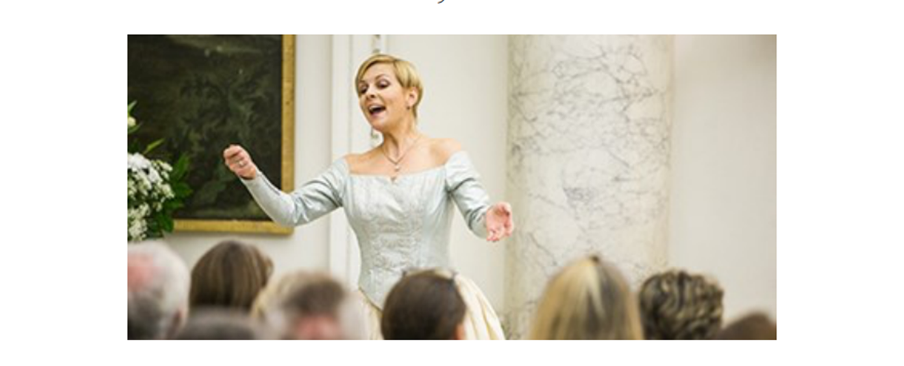
This project explores the therapeutic potential of classical songs for people living with stroke and aphasia. Music has the power to lift and shape mood and identity: this project takes a collaborative stance, engaging with people living with aphasia, musicians and researchers to co-design an arts experience that is both accessible and meaningful. Through a series of workshops we are exploring a social prescribing programme called ‘song surgery’, developed by an opera singer, Bibi Heal. The song surgery experience works on four levels: visceral reaction to the live voice and beauty of the music; targeted subject matter or mood requested by the listener; engagement with the poetry as story-telling; physical movement so that the listener participates in the song. Song surgery has been used with people with physical health conditions such as Parkinson’s Disease and spinal injury; this project is exploring the potential of song surgery to bolster post-stroke identity and promote wellbeing for people with aphasia. The study will end with a live concert showcasing an aphasia-accessible version of song surgery: funds raised will be donated to the aphasia charity Aphasia ReConnect.
Investigators: Sarah Northcott, Bibi Heal, Abi Roper, Sally McVicker, Katie Strong, Tony Woods, John Smejka.
TANGO
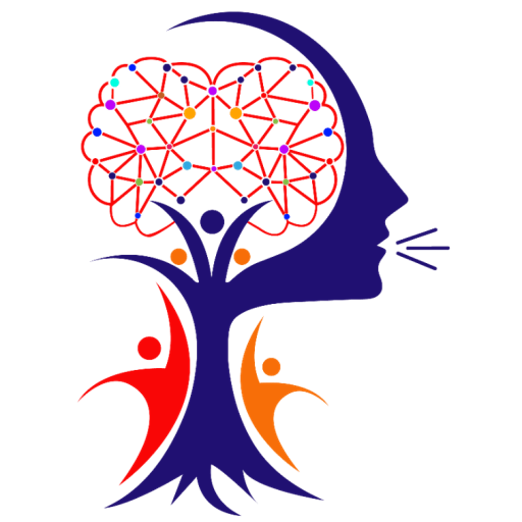
TANGO is an NIHR-funded study that aims to adapt existing communication partner training programmes through the involvement of people with brain injury, their family members and/or carers, and speech and language therapists, to develop a programme that can be delivered within health contexts. TANGO is led by Dr Nicholas Behn.
Write-IT Online
Write-IT online is a research project exploring writing therapy for people with aphasia. The therapy will use assistive technology to support writing in both groups and individual sessions. It will be carried out online via zoom.
Wellbeing In Stroke and Aphasia (WISA)
Wellbeing In Stroke and Aphasia (WISA): developing an innovative, accessible service to support the psychological wellbeing of people living with aphasia
This project is setting up an innovative service offering psychological therapy for people living with post-stroke aphasia. Aphasia can have a devastating impact on a person’s sense of identity, mood and wellbeing, yet people with aphasia can struggle to access psychological support due to their language difficulties. We are offering people living with aphasia up to 8 therapy sessions spaced over 6 months. Participants can choose whether to have their sessions one to one or in a small group, and whether to include a family member in the therapy. The therapy approach is Solution Focused Brief Therapy, which explores a person’s resources to live well with their aphasia, and supports them to make meaningful changes in their everyday life. The therapy is being delivered by Speech and Language Therapists who have received specialist training and who will receive regular support from a stroke-specialist clinical psychologist. The aim of the study is to evaluate the feasibility of setting up the service, and to assess people’s experiences and satisfaction with the service. We are open to referrals to people who live in the UK, and who can access the service either online or in the university clinic.
Investigators: Sarah Northcott, Shirley Thomas, Caroline Baker, Katerina Hilari
Current PhD Projects
Intensive Comprehensive Aphasia Programmes (ICAPs)
Katie Monnelly, a speech and language therapist and PhD student at City is researching ICAPs. Katie has published her PhD findings as she answers her PhD questions.
1. What happens on an ICAP?
Full article: Intensive Comprehensive Aphasia Programmes: a systematic scoping review and analysis using the TIDieR checklist for reporting interventions (tandfonline.com)
2. The views of UK speech and language therapists
Intensive and comprehensive aphasia therapy—a survey of the definitions, practices and views of speech and language therapists in the United Kingdom – Monnelly – 2023 – International Journal of Language & Communication Disorders – Wiley Online Library
3. What are the outcomes from an ICAP?
Full article: A systematic review of Intensive Comprehensive Aphasia Programmes – who takes part, what is measured, what are the outcomes? (tandfonline.com)
In the final year of her PhD, Katie will be working with people with aphasia to explore ICAPs with them. You can contact her on: katie.monnelly@city.ac.uk
Katie is funded by City, University of London and the Stroke Association, see more: C-ICAP: Co-designing an intensive comprehensive aphasia programme with stroke survivors | Stroke Association. Her supervisors are Professor Madeline Cruice, Professor Lucy Dipper, and Professor Emeritus Jane Marshall OBE.
Completed Projects
CommuniCATE

https://blogs.city.ac.uk/communicate/
Enhancing Communication in Aphasia through Technology and Education
The CommuniCATE Aphasia Clinic at City, University of London is exploring the use of computer technologies in therapy for people with aphasia. The clinic is headed up by the Director, Dr Celia Woolf.
EVA

Evaluating the Effects of a Virtual Communication Environment for People with Aphasia EVA
EVA Park is a multi-user online virtual world that gives people with aphasia unique opportunities to practise their speech and establish social connections. It was created at City, University of London, via a process of co-design where people with aphasia collaborated with researchers in human-computer interaction and speech and language therapy.Research studies have investigated the feasibility of delivering a range of interventions on this platform; functional conversation, noun naming, verb treatment, sentence mapping, storytelling and social support groups. Therapy manuals are available to download here.
INCA

https://blogs.city.ac.uk/inca/
Inclusive digital Content for people with Aphasia
The INCA project is investigating how to empower people with aphasia to create, curate and access digital content through innovative technologies. This multi-disciplinary project at City, University of London sees human-computer interaction researchers, speech and language therapists, academia and charity working together.
LUNA
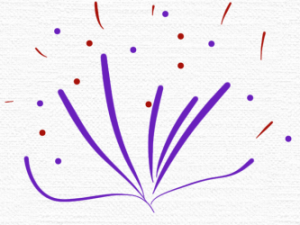
https://blogs.city.ac.uk/luna/
Language Underpins Narrative in Aphasia
Language Underpins Narrative in Aphasia (LUNA) was a research project funded by the Stroke Association that explored a novel discourse treatment in five phases from 2018-2021: (1) synthesising existing work on discourse; (2) surveying Speech and Language Therapists; (3) co-designing LUNA materials; (4) training Speech and Language Therapists; and (5) testing LUNA with people with aphasia.
LUNA is an innovative, creative, and empowering approach to supporting people with aphasia to tell personal narratives. It involves an integrated, personalised therapy targeted at word, sentence, and discourse levels. LUNA provides flexible tools for improving people’s confidence and ability to express themselves through narratives that reflect who they really are.
READ IT

The READ-IT research project explored the use of assistive technology for reading in both individual and group therapy. The three-month intervention aimed to compensate for the reading impairments of participants with aphasia and enable them to re-engage with reading activities that have been abandoned since their stroke.
The project was funded by the Halley Stewart Trust and through fundraising by the City, University of London Development & Alumni Relations Office. The principal investigators were Dr Celia Woolf and Professor Jane Marshall, with Dr Madeline Cruice and Professor Stephanie Wilson as Co-Investigators.
SOFIA
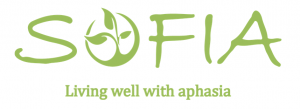
https://blogs.city.ac.uk/sofia/
Living well with aphasia
The SOFIA study explored Solution Focused Brief Therapy for people living with aphasia following a stroke. It was funded by the Stroke Association. Therapy targeted emotional well-being.
SUPERB

https://blogs.city.ac.uk/superb/about/
Adjustment with aphasia after stroke
The SUPERB study aimed to find out what helps people adjust and get on with life after stroke and aphasia. It was funded by the Stroke Association.
Completed PhD Projects
Speech and Language Therapist and Nurse Information Sharing
This doctoral study explored how speech and language therapists (SLTs) and nurses shared information about communication and swallowing on stroke units. Data for this ethnographic study included observations of SLTs and nurses at work, interviews, and patient records. The project was led by Dr Rachel Barnard with supervision from Dr. Madeline Cruice and Professor Julia Jones. After the research, researchers collaborated with people with aphasia, SLTs and nurses to create a 10-minute video for staff on stroke wards, inviting SLTs and nurses to think how they can work together to improve the communication experience of patients.
Virtual Elaborated Semantic Feature Analysis (VESFA)

https://blogs.city.ac.uk/vesfablogs/
This study developed and tested a novel intervention for word retrieval and word use in the virtual world, EVA Park. The intervention used the virtual island of EVA Park as a space to practice words in situated conversations. The 8-week programme, VESFA, was tested in a feasibility randomised control trial. Post therapy interviews explored the acceptability of the treatment to participants. The project was led by Dr Niamh Devane with supervision from Prof. Katerina Hilari, Prof. Jane Marshall and Prof. Stephanie Wilson.